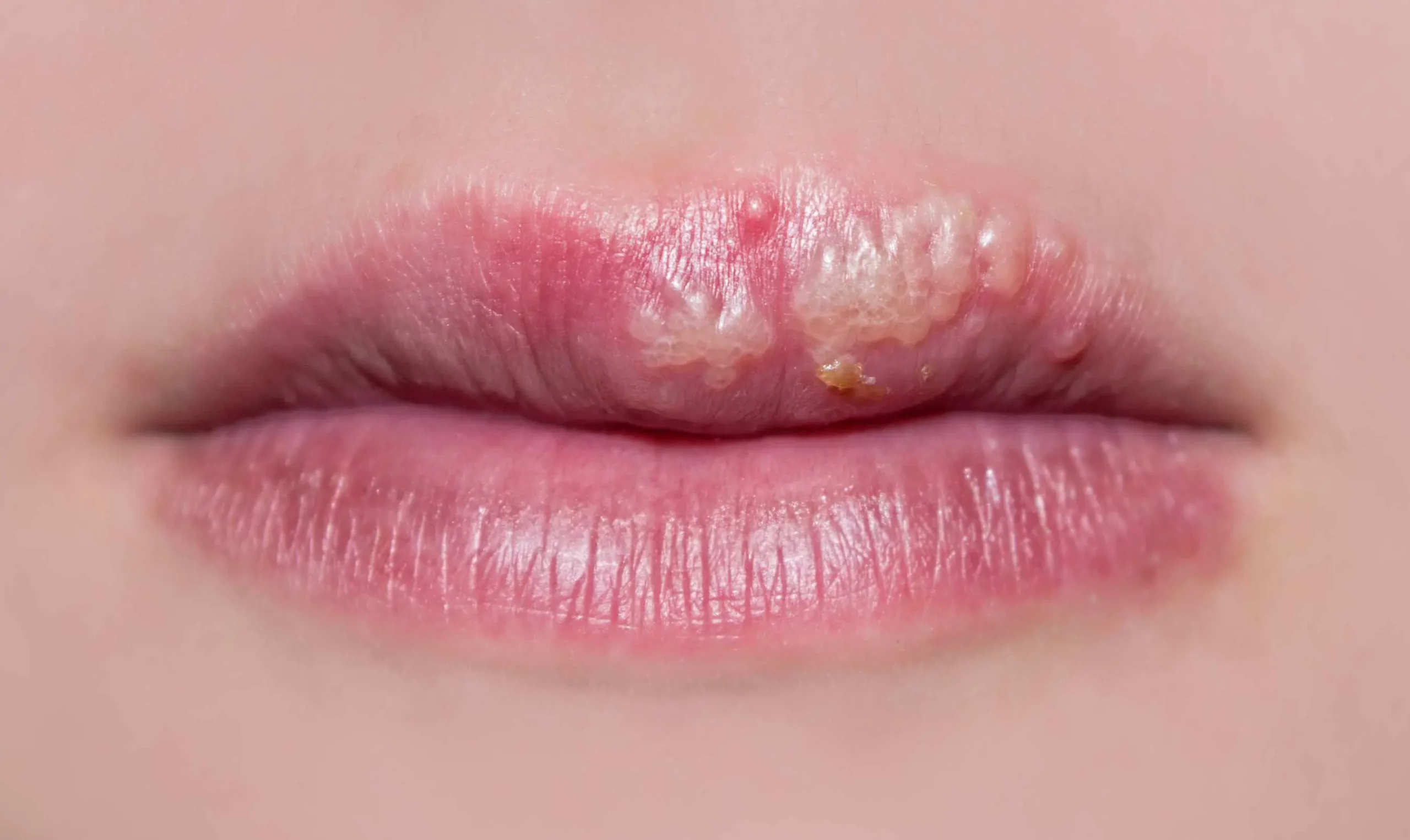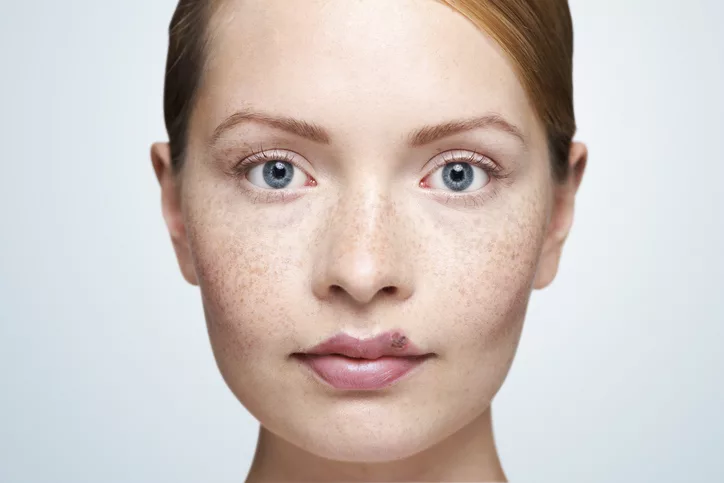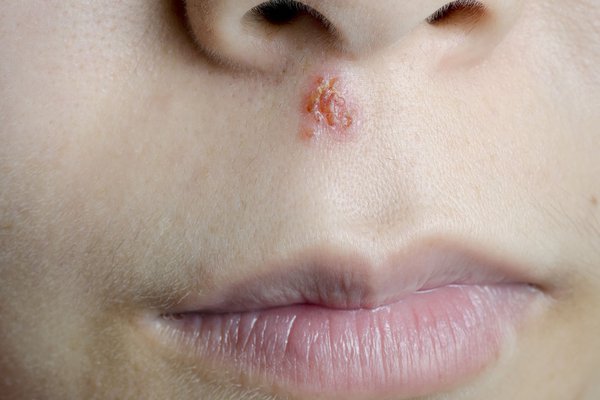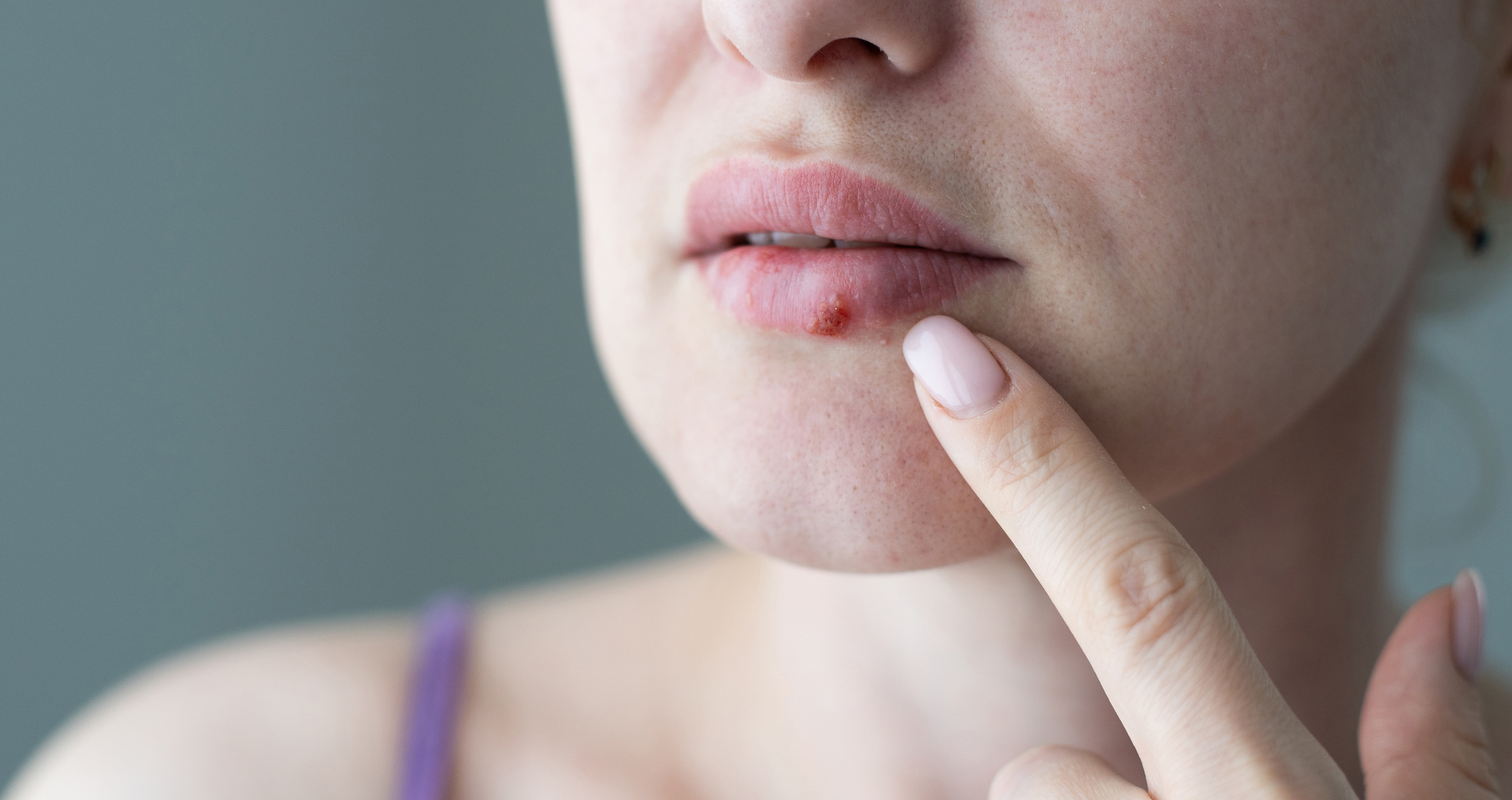Ever wondered why cold sores, also known as fever blisters or oral herpes, seem to pop up at the most inconvenient times? These unwelcome guests, which can appear on your lips, gums, or inside your mouth, are not only highly contagious but also quite common. They’re caused by viruses in the herpes family and can be triggered by a variety of factors.
One such trigger that you might not have considered is your menstrual period. Yes, that’s right. Your monthly cycle could be contributing to these annoying outbreaks. But how does this happen? And more importantly, how can you reduce the number and severity of cold sores by knowing and avoiding your triggers? Let’s get into it.

Contents
Can Periods Cause Cold Sores?
Yes, menstrual periods can sometimes trigger cold sores for some people. This happens due to the hormonal changes, particularly fluctuations in estrogen and progesterone levels, that occur during the menstrual cycle. These hormonal changes can affect the immune system, making it slightly less effective at fighting off the herpes simplex virus (HSV), which is responsible for cold sores.
When the immune system is compromised, even slightly, it can provide an opportunity for the dormant virus to reactivate and lead to an outbreak. Besides hormonal changes, other factors associated with menstrual periods, such as stress, fatigue, and even changes in dietary habits, can contribute to the emergence of cold sores.
If you find a recurring pattern of cold sores appearing with your menstrual cycle, you might consider discussing preventive strategies with your healthcare provider. They might recommend antiviral medications to manage and prevent outbreaks or suggest other lifestyle adjustments to help strengthen your immune system during your period.
What Does A Cold Sore Look Like?
A cold sore is a small blister that typically forms around the lips or mouth. It is caused by the herpes simplex virus (HSV-1). Here are the stages of a cold sore and what it looks like:

-
Tingling or itching: The first sign of a cold sore is often a tingling or itching sensation around the lips or mouth. This can happen a day or two before the blister appears.
-
Blister formation:One or more small, clear blisters will form on the skin. The area around the blisters may be red and swollen.
-
Ulceration: The blisters may break open and weep clear fluid. This stage is usually the most painful.
-
Crusting and healing: The blisters will crust over and scab. The scab may crack or bleed slightly. The cold sore will usually heal within a week or two.
Why Do You Keep Getting Cold Sores?
Here are some common reasons why you might keep getting cold sores:

1. Immune System Suppression
A weakened immune system can’t suppress the herpes virus as effectively, making outbreaks more frequent. Immunosuppression can result from several factors, including stress, illness, fatigue, or being immunocompromised due to a medical condition or medication.
2. Stress
Physical and emotional stress are significant triggers for cold sores. Stress hormones can suppress the immune system and make it easier for the virus to activate.
3. Exposure to Sunlight
UV radiation from sunlight is a well-known trigger for cold sores. UV light can damage skin cells, weakening your skin’s defenses and allowing the virus to replicate and cause blisters.
4. Hormonal Changes
Fluctuations in hormones, such as those during menstrual cycles, pregnancy, or from hormone therapy, can also trigger cold sore outbreaks.
5. Physical Trauma
Trauma to the lips or the nearby skin, including dental procedures, lip injuries, or even intense weather conditions (extreme cold or heat), can provoke an outbreak.
6. Diet and Lifestyle
Certain dietary factors may influence cold sore outbreaks. For example, high levels of the amino acid arginine, found in foods like nuts and chocolate, can exacerbate the virus. Alcohol and caffeine can also trigger outbreaks in some people.
7. Illness or Fever
Commonly referred to as “fever blisters,” cold sores often surface when you’re sick with another infection, especially with fever, which is why the immune system may be too busy fighting off another infection to keep HSV-1 in check.
How To Heal A Cold Sore Fast?
There is no guaranteed way to heal a cold sore instantly, but several strategies can help speed up the healing process:

1. Over-the-counter Medications:
- Antiviral creams: Look for creams containing acyclovir, penciclovir, or docosanol. These can shorten the duration of the outbreak by a day or so if applied at the very first tingle or itch.
2. Home Remedies:
- Cold compress: Apply a cold compress wrapped in a clean cloth to the affected area for 15-20 minutes at a time, several times a day. This can help reduce swelling and discomfort.
- Zinc therapy: Studies suggest zinc supplementation might shorten the healing time. However, consult a doctor before taking zinc supplements, especially if you have underlying health conditions.
3. Lifestyle Practices:
- Lip balm: Keep your lips moisturized with a petroleum jelly-based lip balm to prevent dryness and cracking, which can worsen discomfort.
- Reduce stress: Stress can trigger outbreaks, so relaxation techniques like meditation or deep breathing might be helpful.
- Avoid triggers: Identify and avoid your personal triggers for cold sores, such as sunlight, harsh weather, certain foods, or friction from ill-fitting dentures.
Frequently Asked Questions
How long do hormonal cold sores last?
Hormonal cold sores typically last between 1 to 3 weeks to fully heal. Initial outbreaks may linger for up to 3 weeks, while recurring ones often resolve in about a week, assuming no medication is used. Antiviral medications like Acyclovir can expedite healing, especially when applied right at the onset of symptoms.
What am I lacking if I keep getting cold sores?
Recurrent cold sores can signify deficiencies in vitamins D and C, which play an instrumental role in immune health. A well-functioning immune system is pivotal in suppressing the HSV1 virus and reducing cold sore outbreaks.
Are cold sores triggered by hormones?
Indeed, hormones can trigger cold sores. Hormonal changes associated with menstrual periods, menopause, or other conditions can potentially induce a cold sore outbreak. Additional triggers include stress and viral infections.
How can I dry out a cold sore overnight?
While it’s not guaranteed to dry out a cold sore overnight, numerous remedies can help accelerate healing. These include prescription antiviral drugs, over-the-counter medications, cold compresses, and natural remedies such as Propolis and Lemon balm.
Can low estrogen cause cold sores?
Fluctuating hormone levels during menopause, which include a drop in estrogen, can indeed trigger cold sore outbreaks. Stress and fatigue, often associated with menopause, may also contribute to cold sore flare-ups.
I am a medical student with experience and interest in Women’s health and well-being.